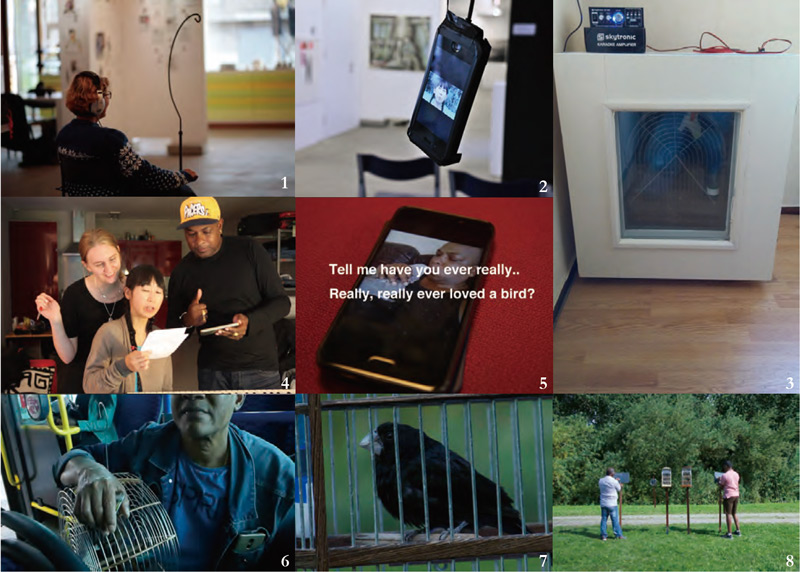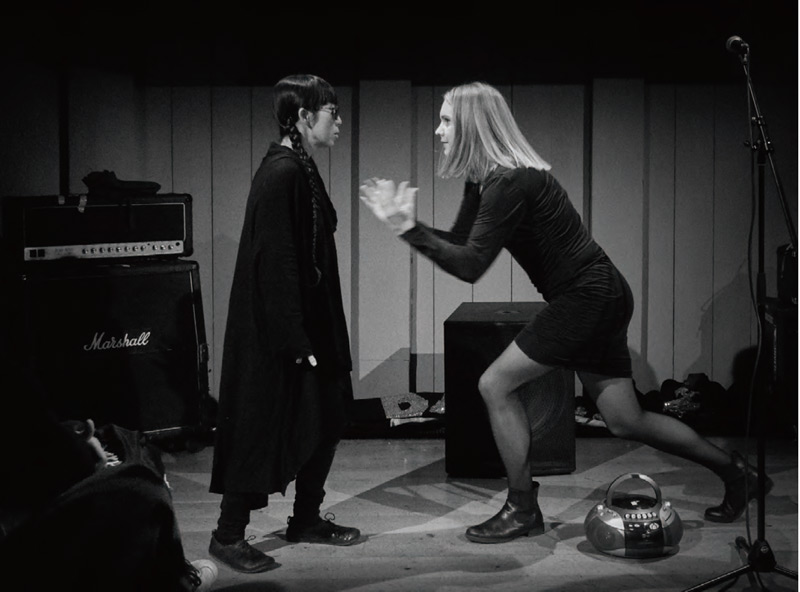Collaboration with Maria Lepistö and Alina Ozerova

Suriname is one of the countries in South America, which used to be a Dutch colony. In the 1970’s, when Suriname got independent, many Surinamese immigrated to the Netherlands and they brought South American birds called Picolet (7) and Twa Twa.
With these birds, it is common to make a singing match between 2 male birds in Suriname (8). In Amsterdam,there is a community called Ringmaster which keeps this culture. Most of the members are men and retired and from Suriname. I heard from them that in Suriname it is also common to carry around a bird in a cage, putting it on a scooter, going shopping with it or going for a walk with it, but here everyone carries a bird in car, except for one guy (6). Maria Lepistö, who I met through her project to imitate animals, heard about this bird culture, and together with Alina Ozerova, we got interested in the Surinamese people devoting themselves to raising and training the birds in the Netherlands, where they have to make adjustment for the cooler weather and the Dutch culture. We started visiting them every week since April 2017 to talk to them and to collect audiovisual materials as a collaborative
research project. My motivation for this project was to imitate the bird voice. The original bird songs are sung by male birds against other male birds for the sake of territory and in
order to acquire female bird attention. Female birds are stimuli. The bird has a higher frequency than human’s voice and thus it is difficult to imitate as it is. In order to
imitate, I have to slow down the original speed, as if I am shifting into bird time. In the Netherlands, the bird owners make their birds listen to MP3 players repeating a good
song (3). One guy told me the birds in the Amazon, the nature, sing more beautifully and here bird songs become stereotypical.
The community was bigger just after the immigration.
Now the birds are forbidden to import and young people don’t show so much interest in this culture. The birds cannot survive outdoor in the Netherlands. Through interviews to bird owners, we heard about stories of immigration, about their children, weather they feel
more Dutch than Surinamese, whether they want to go back, about their language, about their mixed culture, etc. Together with bird imitation, we sung a modified Karaoke, “Have you ever really loved a bird?”(4&5).

Performance documentation, Lost and Found, Waag Society
This performance piece(>>Vimeo) connects what we learned from Surinamese bird owners, their tips to
make a good songbird and demonstration of the relation between a master (Maria on the right) and a bird in cage (Miyuki on the left). We used time-stretching technique, which we usually use for editing audio, in order to make it possible for human (me) to imitate the bird sound and to express bird-time.
The script for speech is written by Maria in relation with the documentary-based pieces. The background sound was mixed by Alina.
>>BACK
|